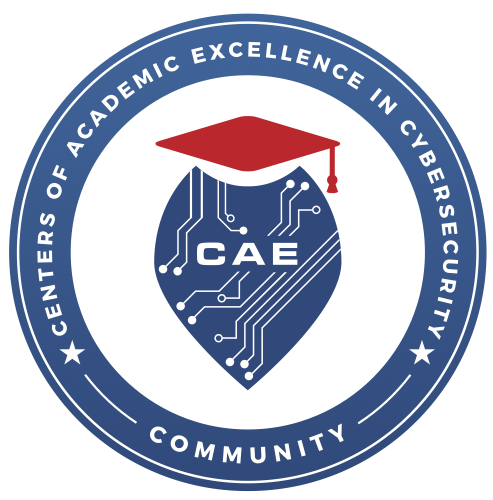Home | Advancing Technology Degrees | Game Programming
The Game Programming Bachelor of Science degree at University of Advancing Technology (UAT) will emphasize the essential issues and the skills required to develop games for multiple video game platforms such as PC, console, mobile, online and virtual reality. These skills have broader applications in related industries such as entertainment, business, research and training.
Game Programming students begin with the programming principles, skills and techniques shared in all programming disciplines, and then focus on game-specific features and techniques. This program emphasizes C++ programming, C# programming, scripting, data handling, gameplay interaction, artificial intelligence, networking and the use of industry standard middleware, game engines and APIs.
Students in the Game Programming degree will also develop a critical approach to the study of gameplay, interaction and design.
UAT is one of the only fully accredited game design programs that boasts connections to a full continuum of game studies degrees, including Game Programming, Game Art and Animation and Game Design.
UAT offers more than a leading Game Programming degree, they provide a culture that fosters game innovation and connection to the industry. UAT Game Studios is an independent game studio and production pipeline that supports game development and provides students the opportunity to ship completed works. The suite of UAT game degrees is comprised of more than just academic coursework, it is a culture of experiential learning derived from a multidisciplinary collaboration of video game programming students and others across undergraduate and graduate degrees both on-ground and online.
Within the ever-advancing video game industry, qualified and talented game programmers are in growing demand. With a Game Programming degree from UAT, you will be ready to apply your game programming education in real-world settings while conquering and innovating the video game industry and beyond.
Check out some of this semester’s Game Programming courses and gear up for fresh challenges. Unlock new skills and power up your education.
Gameplay Programming Concepts teaches students the most important theories and concepts in game programming. Students will be exposed to major game mechanic fundamentals that are expressed in multiple games across several genres. There is a strong focus on analysis and discovery learning. Those taking this class will be expected to observe existing mechanics and attempt to reproduce them both in documentation and in code. The course makes use of an existing game engine to focus on gameplay mechanics with the end goal of producing a playable game.
Mobile games are a lucrative industry that is still in a state of rapid growth with tens of millions of users as a potential market for games, all delivered wirelessly on a royalty basis. This course teaches how to develop games for mobile platforms using appropriate languages and toolkits. Students will explore the mobile hardware and learn about the specific techniques and challenges present in developing a game for a small screen and limited user input capabilities.
Quality implementations of artificial intelligence can make or break a game. This course will synthesize the theories and concepts of artificial intelligence with the skills of game programming. Students will program a wide variety of artificial agents utilizing a variety of traditional, modern and theoretical techniques. The student will apply algorithms for pathfinding, strategy, personality and other behaviors. Player interactions with these behaviors will be examined to provide challenging, balanced and enjoyable gameplay.
This course introduces the fundamentals of game engine programming by customizing and enhancing an existing framework. Students will learn the core concepts of engine programming. Symptoms of taking Programming for Game Engines may include: a greater understanding of frame rates, synchronization, timing, 2D and/or 3D graphics rendering, timed animation, user input, multiplayer, physics, collision detection and the most common algorithms used in game development. Many of these fundamentals will be implemented into a working engine from which playable games may be developed.
Students will design and develop a Strategy Game solving the programming challenges associated with games in this genre. This course will explore topics such as mission setup, formations, movement, data tracking, map control, AI, and game flow. The game will consider both real time and turn based systems.
Students will design and develop a Role-Playing Game solving the programming challenges associated with games in this genre. This course will explore topics such as multiple character selection, inventory system, storytelling, quests, player progression, and character control. Characters will each have special attributes such as strength, power, weapons, casting spells, throwing projectiles, etc. as well as creating Heads-Up Displays (HUDs) for inventory and player health, mana and progress, all of which are tested by generating Artificial Intelligence (AI) characters.
Educating the next wave of innovators, our faculty leverage their experiences to mentor students to lead innovations and solve challenges in advancing technology.
UAT’s Synchronic Learning model provides an education framework that prepares superior graduates to become tomorrow’s innovators. This model embodies UAT’s methodologies, curricula and community dedicated to fostering an environment of innovation that promotes demonstrated mastery and job readiness.
How does UAT prepare superior graduates? Students are required to participate in projects that solve real problems. UAT requires students to innovate and create a working proof of concept that’s never been done before. Students complete internships, community projects and apprenticeship experiences to cultivate their ability to succeed in the workplace.

Network Security curriculum certified by the US National Security Agency's Information Assurance Courseware Evaluation program
